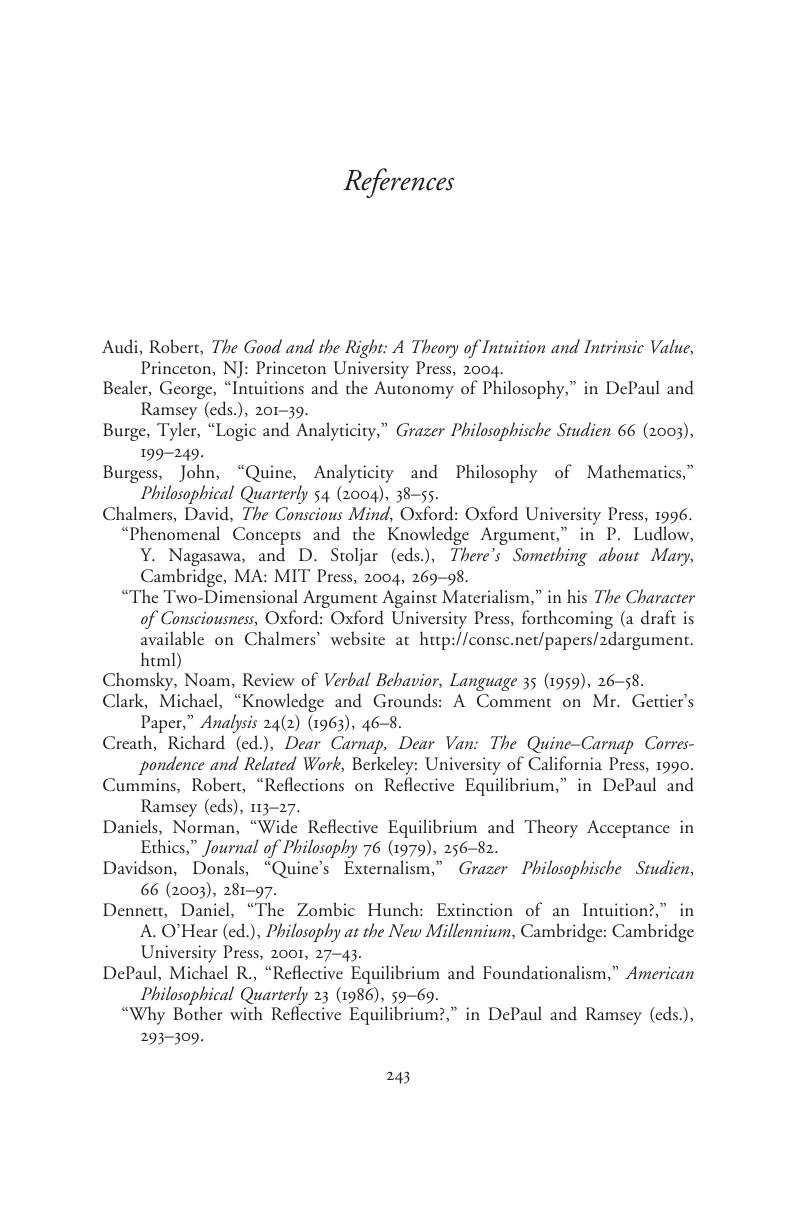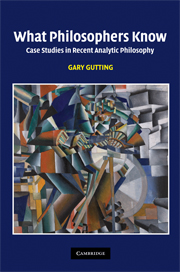References
Published online by Cambridge University Press: 05 June 2012
Summary

- Type
- Chapter
- Information
- What Philosophers KnowCase Studies in Recent Analytic Philosophy, pp. 243 - 247Publisher: Cambridge University PressPrint publication year: 2009



